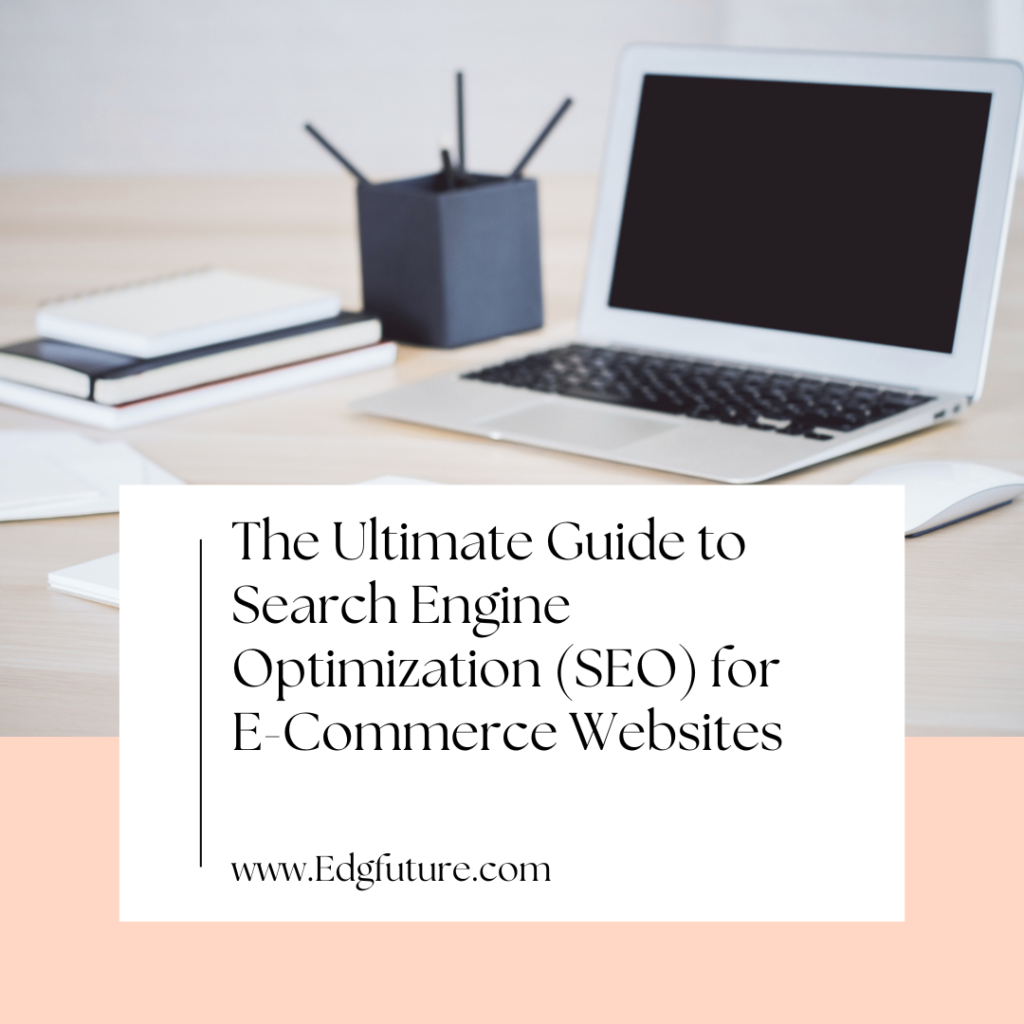Introduction
In today’s digital age, having a strong online presence is crucial for the success of any e-commerce business. With millions of websites competing for attention, it is essential to optimize your website to rank higher in search engine results. This guide will provide you with an in-depth understanding of Search Engine Optimization (SEO) and how it can benefit your e-commerce website. We will explore various strategies and techniques that will help drive organic traffic and increase conversions.

Understanding SEO
Search Engine Optimization (SEO) refers to the process of improving a website’s visibility on search engine results pages (SERPs). By optimizing your e-commerce website for search engines, you can attract more organic traffic, enhance your online presence, and ultimately boost sales.
Importance of SEO for E-Commerce Websites
Effective SEO strategies can significantly impact the success of your e-commerce website. Here are some reasons why SEO is crucial for your online business:
- Increased Visibility: Higher rankings on SERPs lead to increased visibility and exposure to potential customers.
- Targeted Traffic: Optimizing your website for relevant keywords ensures that you attract targeted traffic who are more likely to convert into customers.
- Brand Authority: A well-optimized e-commerce website builds trust and credibility among users, establishing your brand as an authority in the industry.
- Cost-Effective: Compared to paid advertising, implementing SEO strategies can provide long-term benefits at a lower cost.
Essential SEO Techniques for E-Commerce Websites
Now that we understand the importance of SEO for e-commerce websites let’s explore some essential techniques that can help improve your website’s performance:
1. Keyword Research
Keyword research is the foundation of any successful SEO strategy. It involves identifying relevant keywords that potential customers are using to search for products or services. Here’s how you can conduct effective keyword research:
- Use online tools like Google Keyword Planner, SEMrush, or Moz Keyword Explorer to find high-volume and low-competition keywords.
- Focus on long-tail keywords that are specific to your products or services.
- Analyze competitor websites to identify keywords they are ranking for.
2. On-Page Optimization
On-page optimization involves optimizing various elements on your e-commerce website to improve its visibility on search engines. Here are some key areas to focus on:
- Title Tags: Include relevant keywords in your title tags to help search engines understand the content of your web pages.
- Meta Descriptions: Write compelling meta descriptions that entice users to click on your website in search results.
- URL Structure: Create clean and descriptive URLs that include targeted keywords.
- Header Tags: Use H1, H2, and H3 tags to structure your content and make it more readable for both users and search engines.
- Keyword Placement: Incorporate relevant keywords naturally throughout your website’s content.
3. Technical SEO
Technical SEO focuses on improving the technical aspects of your e-commerce website. It ensures that search engines can easily crawl and index your site. Here are some technical SEO techniques you should consider implementing:
- Mobile-Friendly Design: Optimize your website for mobile devices as more users are accessing the internet through smartphones and tablets.
- Site Speed: Improve your website’s loading speed by compressing images, minifying CSS and JavaScript files, and using caching techniques.
- XML Sitemap: Create an XML sitemap to help search engines discover and index all the pages on your website.
- Robots.txt: Use a robots.txt file to guide search engine crawlers and control which pages should be indexed.
4. Content Marketing
Creating high-quality content is essential for both SEO and engaging your audience. Here are some content marketing strategies to consider:
- Product Descriptions: Write unique and compelling product descriptions that incorporate relevant keywords.
- Blogging: Start a blog to provide valuable information related to your products or services. This can help attract organic traffic and establish your brand as an industry expert.
- User-Generated Content: Encourage customers to leave reviews and testimonials, as this can boost credibility and improve search engine rankings.
5. Link Building
Link building is the process of acquiring high-quality backlinks from other websites. These backlinks act as votes of confidence for search engines, indicating that your website is trustworthy and authoritative. Here are some effective link building techniques:
- Guest Blogging: Contribute guest posts to reputable websites in your industry, including a link back to your e-commerce website.
- Influencer Outreach: Collaborate with influencers or industry experts who can promote your products or services on their platforms, generating backlinks in the process.
- Broken Link Building: Identify broken links on other websites and reach out to the website owners, suggesting they replace the broken link with a link to your relevant content.
6. Email Marketing Integration
Integrating SEO with email marketing can be a powerful combination for driving traffic and conversions. Here’s how you can leverage email marketing for SEO:
- Keyword-Rich Subject Lines: Optimize your email subject lines with relevant keywords to increase open rates.
- Internal Links: Include links to relevant pages on your e-commerce website within your email newsletters.
- Social Sharing Buttons: Encourage recipients to share your emails on social media platforms, increasing visibility and potential backlinks.
Conclusion
Implementing effective SEO strategies is crucial for the success of any e-commerce website. By understanding the importance of SEO, conducting thorough keyword research, optimizing on-page elements, focusing on technical SEO, creating quality content, building high-quality backlinks, and integrating email marketing, you can significantly improve your website’s visibility and attract more targeted traffic. Start implementing these techniques today to stay ahead of the competition and drive success for your e-commerce business.






